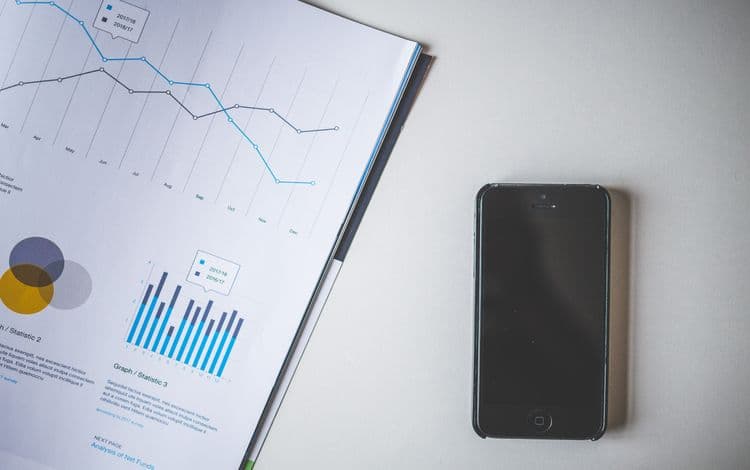First off, some may wonder what exactly is meant by the term prime rate…The prime lending rate represents the best interest rate that one can get if they are considered creditworthy. For example, a bank will take the national prime rate and add a percentage margin. There may be credit cards you've seen that say prime rate + X percent. Business loans function similarly; those prime borrowers may potentially qualify for just the prime lending rate.
This national prime rate is a starting point essentially. Whether it's for a business loan, car loan, home mortgage, credit card, what have you, the prime rate will increase based upon the amount of risk a person or company carries. So, it goes without saying, the more of a risk you pose, the higher the margin added to the prime rate. And the businesses and individuals with good credit scores along with a number of other factors mitigating their risk, get lower interest rates.
In coming up with the prime rate, this is done by banks—not the government. The banks do use the federal funds rate as their reference point. The federal funds rate is established by the Federal Open Market Committee and is consequently the rate utilized by the Federal Reserve Board. The banks, in setting the prime rate, usually will add some sort of percentage to the federal funds rate.
A Better Understanding of the Prime Rate
We've all seen how the Federal Reserve raises and lowers rate in response to the national moment, economically speaking. Subsequently, the banks will also respond in kind and change their prime rates, and they do so fairly quickly. If the federal fund rate increases, this also means an increase in the prime rate which in turn leads to higher loan costs especially for businesses. Fixed rate loans, however, will not generally be affected; those variable rate loans can be significantly impacted through a rate hike.
A fixed rate loan is one that has a locked in an interest rate for the duration of the loan. The prime rate can therefore only affect this loan at origination. Whereas with a variable rate loan, the rate is impacted by what is happening with the federal fund rate and in turn the prime rate. Your interest rate, in other words, can increase during the loan term. This could certainly mean higher monthly payments as the rates go up.
Here is an example: If you have a 100,000 business loan with a five-year payback term at 10 percent interest and the rate goes up even just half a point this could result in you paying over 3k more given the life of that loan.
Prime Rates Change
Lowering the prime rate helps to get the economy moving along; while of course raising it makes it harder for people and companies to procure funding as the loans cost more. If unemployment is particularly high and/or the economy seems to have slowed down, this is when we usually see a rate decrease. This, in turn, promotes lending and makes loans more accessible to those who otherwise could not afford them. If the economy is chugging along however and the threat of inflation looms, the Fed will almost always raise the rate. This will then cause the prime rate to go up; the logic behind it is that such a rate increase helps to keep spending under control.
You can find the current prime rate on the Federal Reserve Board website. Remember, for better customers who are considered less risky and more creditworthy, their rates will be lower. For those with less than stellar scores and not a lot of time in business, interest rates will most definitely be higher.
What will the Prime Rate Do?
All signs currently suggest that the Federal Reserve will not hike rates for the most part anytime soon. But this is not a done deal. Things do change. The economy can certainly fluctuate prompting the Fed to reconsider where rates stand. Back in December of 2018, the Fed did say that there was the potential for 2-3 rate hikes in 2019.
When considering taking out a business loan you do want to think about future rates. If you believe that there is a chance the rate will go up, think about what type of loan you want to take out and when you might be able to lock in your interest rate.
What Sort of a Rate Will Your Small Business Get?
This is an important question. Lenders do not like to see risk in potential clients. Obviously, they want to be paid back and on time. This is where interest rates come into play; the better the prospect you are, the lower the rate you will be charged for the loan. The lending institution will examine such things as credit score, time in business, availability of collateral, down payment, and annual revenue. They could look at any number of things really. If there are concerns about any of this, expect to pay more in interest over the life of the loan. This helps protect the lender.
The industry can also impact rates. Some fields have higher default rates and even though this is not reflective of you, you will still be paying an increased rate because of it. You want to show the lender that you are prepared, that you've done your homework, tried to minimize any risks and have a positive history as far as debt repayment. The less risk, the better the rate you are going to be able to get when applying for your business loan.
At First Union, we offer many loan options from short term loans to lines of credit. If you are in need of funding, call today to speak to one of our agents!
